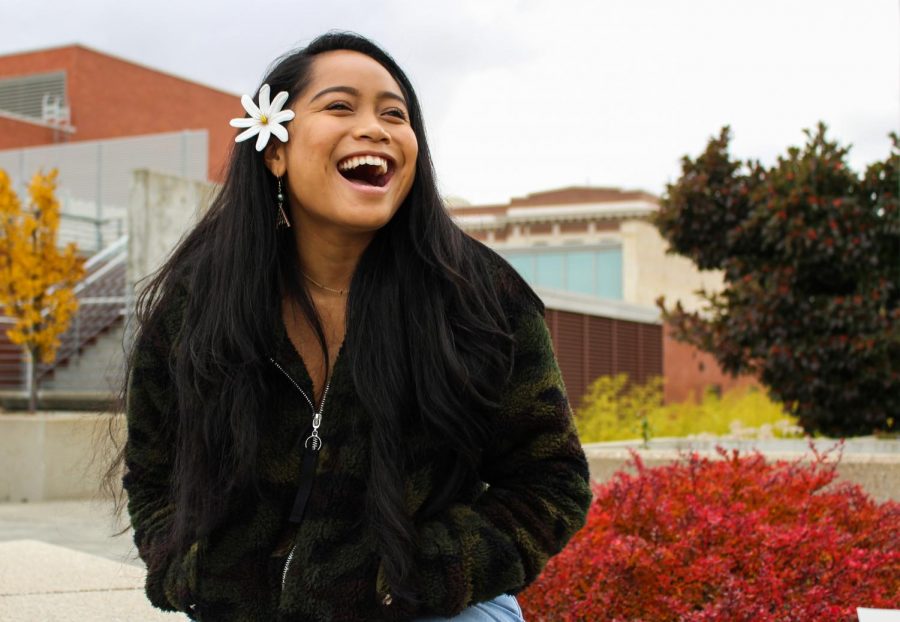Competition winner calls for more diversity
Award winner opens up about cultural influences
WSU freshman Kau’i Marley Samio describes her experience as a dancer on Monday afternoon on the rooftop of Terrell Library.
October 23, 2019
Kau`i Marley Samio strives to keep her Tahitian culture alive by sharing it with as many people as possible. She dances for her family, teachers, and heritage.
“The dance is a lifestyle,” she said. “Once you learn, you never stop.”
Samio recently won first place in the Cougar Dance Competition. Samio said she was not trying to win because she just wanted to share her culture.
University Recreation offered Samio a position teaching Tahitian dance at the Student Recreation Center.
She is a freshman double majoring in psychology and criminology and hopes to be a criminal profiler for the FBI someday.
“We were told to branch out into our civilized world,” she said. “There’s a need for more Hawaiians in this career.”
Samio grew up in Smoky Valley in Kauai, Hawaii. She decided to come to WSU because her uncle is a WSU alumnus.
Samio and her uncle also went through the same teen hire program at the Pacific Missile Range Facility in Hawaii. The program allows youth to work jobs, like cleaning rental equipment and helping people check out gear.
“He mentored me during my teenage years and recommended I go here,” she said.
Samio attended a boarding school for six years and lived with 50 other girls. She said she and the other students were close, like a family.
Samio has found a new family within the Hawaii Club and the Pacific Islanders Club at WSU.
“Being within my Hawaiian culture gives me a safe haven,” she said.
Samio said the club is preparing for exhibition performances during Dad’s Weekend. She attends rehearsals every Sunday, Monday, Wednesday and Thursday. The group will perform Tahitian and Hula dances.
The club has already performed at elderly homes in Idaho and for the homecoming bonfire.
“I was dancing barefoot at the bonfire and my feet went numb,” she said. “ I couldn’t feel anything but when I tried to dance I almost fell over.”
Samio started to learn how to dance Tahitian and Hula at just three years old. Her first teacher, Kapulani Kinimaka, gave her lessons every Monday and Wednesday.
Most recently, Nick Kaneakua continued to expand Samio’s knowledge of the dance. She said he taught her more about the Tahitian culture and a modernized version of the dance.
Samio has continued to be involved with a dance group in Hawaii called Ori Uvira for five years. The group sends her videos to practice so when Samio comes home during breaks she can dance at the group’s gigs.
The group dances at weddings, graduation parties and more, she said. They do not usually take payments for the dances.
“I don’t like being paid for cultural practician,” she said.
Samio draws inspiration from her grandpa Ronald Samio, she said.
She hopes to follow in her one of her dance teacher’s footsteps by winning first place in an annual dance competition held in Tahiti, to honor her memory.
Her teacher, Ke’alaipoa Kinimaka, won first place in the competition but had to train for much of her life for the title.
“It has been my dream for all my life,” Samio said.










